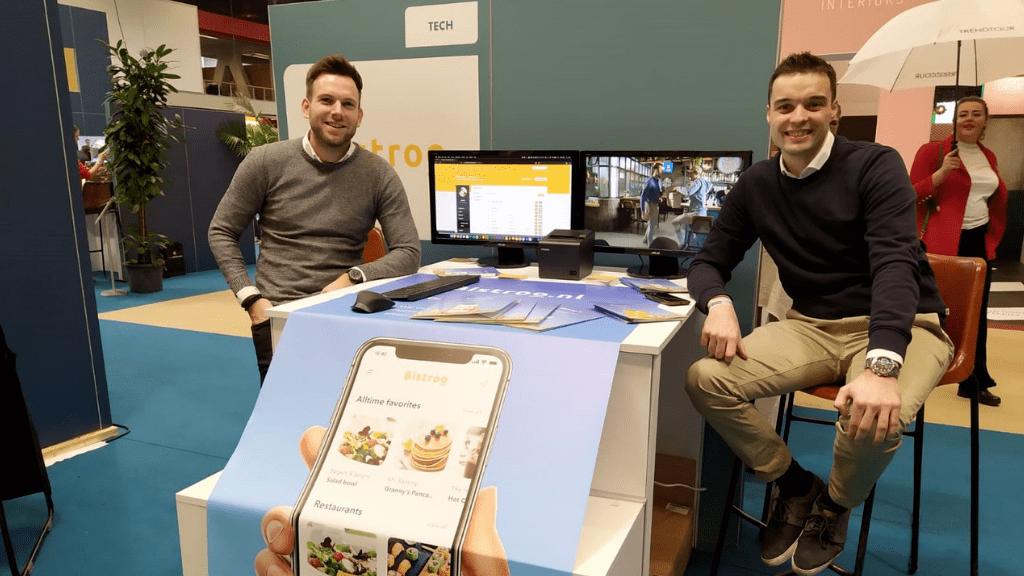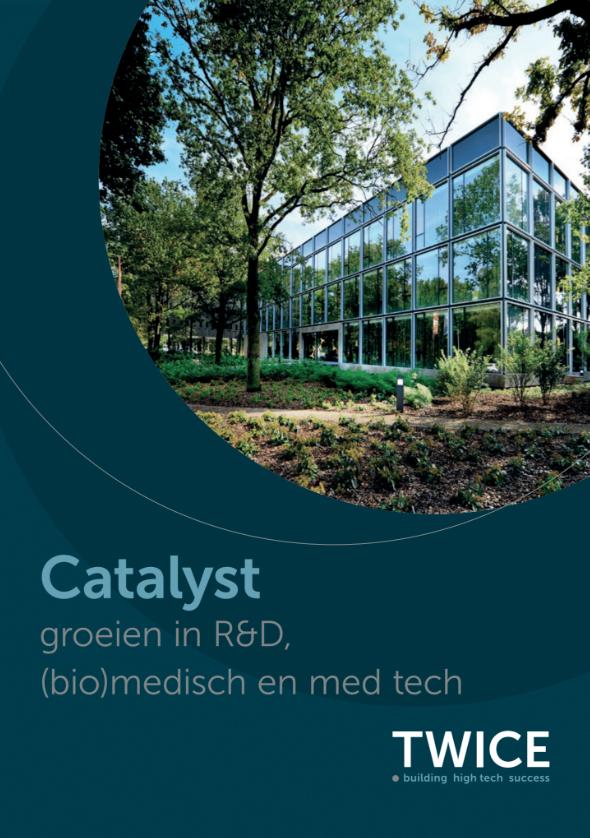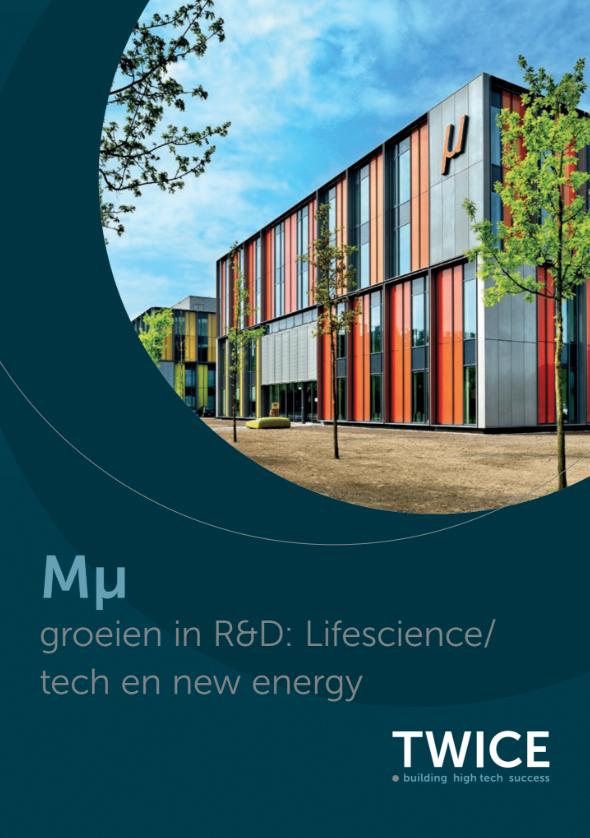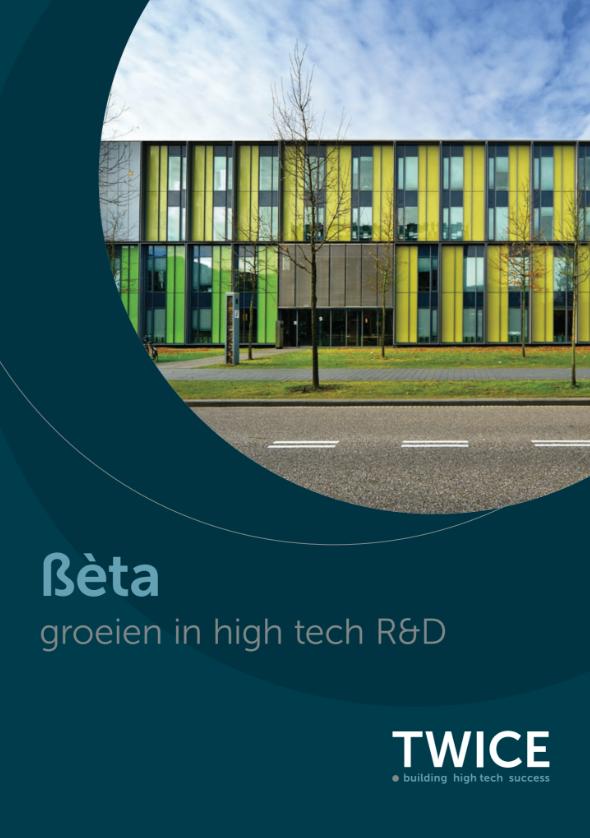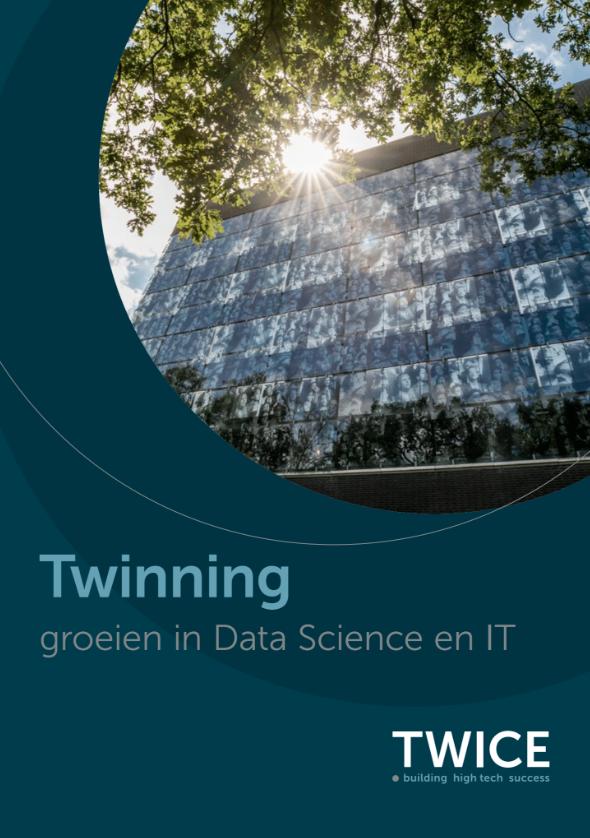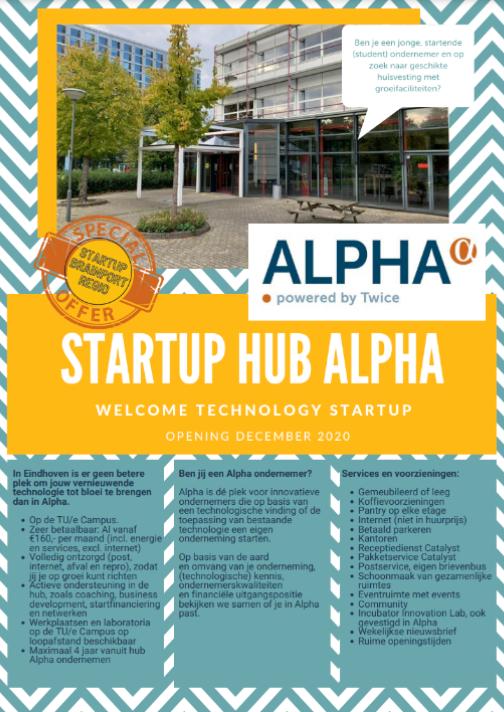"If you have a small farm where you grow, wash and prepare your own potatoes, or you have a restaurant, why not sell directly to your customers on your terms? In today's market, we don't have a good infrastructure for that. Especially not digitally."
This is the heart and core of startup Bistroo, the next generation of food applications, located in Twice hub Beta at the HTCE. Transparent food eCommerce: that's what Bistroo brings to the table. In this article published on the HTCE website, Bas Roos and Bob Dohmen talk about the latest development at Bistroo.nl
"I'm a businessman," says founder and CEO, Bas Roos. "But I've always been intrigued by information technology and how to use it in managing business processes." Bas has had a lot of experience analyzing how their processes are designed and embedded in their IT. But in November 2018, the urge to become an entrepreneur became even stronger. He started consulting on digital transformation. He became intrigued by blockchain technology and the more reliable way it transferred data. That was the beginning of Bistroo.
Decentralize to optimize
In short, blockchain technology decentralizes collaboration: it controls handling, transactions and trading, without the need for an intermediary. "When I looked at the food industry as a whole, everything was so organized that we were very dependent on the middleman," says Bas. He says this platform, which sells the products, is empowered by being the entity that other parties depend on. They control pricing, customer credibility, purchasing and payment terms. In short, they dictate the market.
Bas understood that it was time to break certain aspects of the food chain. Thus was born the idea of creating a digital infrastructure where people could do business directly from the source to the consumer. "We chose food as the first market in which we want to launch this protocol," said Bas, who also likes to think that the idea can be applied to other segments.

A new kind of food app
Bistroo is a digital infrastructure that simplifies the commercial relationship between producer or merchant and consumer without an intermediary controlling payments, prices or even payout terms. In Bas' words, "It is a neutral, independent gateway for you to conduct your own business. You are responsible for the information provided to customers and for setting your own price. We take care of the marketing, traffic and advertising, but the business owner determines the discounts and promotions. Business owners pay a fixed, pre-arranged fee for Bistroo that is not too high, but covers the cost of the service.
Food is an example of an area where this highly controlled system is currently the norm. Bistroo demonstrates that it is a reaction to that model, as it focuses heavily on the autonomy of the entrepreneur: "They are the ones running their business and we only facilitate in a completely neutral and transparent way," Bas explains.
Bistroo's platform gives merchants an account with a back office, a business interface and a fully functional store where they can manage the menu, payments, discounts, images and everything else related to their business. Business owners have the flexibility they need to sell their products in a way that suits them best.
(Un)fair trade
When consumers use applications to order food, they pay the platform, and the platform transfers the money to the provider. "What we have done is that the payments go directly to the entrepreneurs. This doesn't have to depend on a service provider if you organize it more directly. Because it makes no sense to have a party in between saying at what price you have to sell your products or meals, if you're getting paid for that pizza, while also charging a pretty hefty fee for the service provided."
Most of the current structure for food (e-)commerce and distribution is not neutral and transparent, according to the CEO. For example, the performance rating or the order in which restaurants or products appear in front of the user, the credibility of information from the current generation of platforms is questionable. "We embody the next generation of online platforms, which means making those things accessible and transparent, without any manipulation in the data," Bas stressed.
Personalized experience
Bistroo's interface provides users with a profile in which they can indicate their preferences, such as food allergies and intolerances. Along with previous purchases, these will be the indicators for future suggestions. Later, more interaction will be added to the platform in the form of a personalized timeline that shows new sellers in line with users' inclinations.
Rewarding the community in providing reliable information and valuable content, which translates into sales, is another feature that will be included in the future. For example, users could share recipes or write complete and verified (by other users) reviews and receive incentives for doing so. "In this way, we want to put the consumer and his profile at the center and deliver content based on the interests of the community. A mix of social interaction and eCommerce."
An immediate success
The first version of the platform was launched in March, and it went from zero to 100 traders in a month, becoming operational immediately. As a result, Bas and CTO Bob Dohmen had to quickly expand the team, which now numbers eight professionals.
Customer feedback has been a crucial factor in the improvements made to the platform over the months. The new version of the app is scheduled to be released in a few weeks. The idea is to penetrate the Dutch market first, but they plan to expand the business to other countries in the future, with the app designed to be easily translated into other languages. "The technology is limitless. We can pick it up and deploy it anywhere we want, with only minor modifications," explains the entrepreneur, who also leaves a call to action: "What limits us to that is the marketing, the business side of things. So if we could get ambassadors from other countries to help us get more exposure to traders and consumers, that would be very helpful."
Bas says their ultimate goal is to get people to understand their message: "It's very important for us to be a transparent, independent, neutral and fully enabling platform, because we don't think there's anything like it on the market right now."
